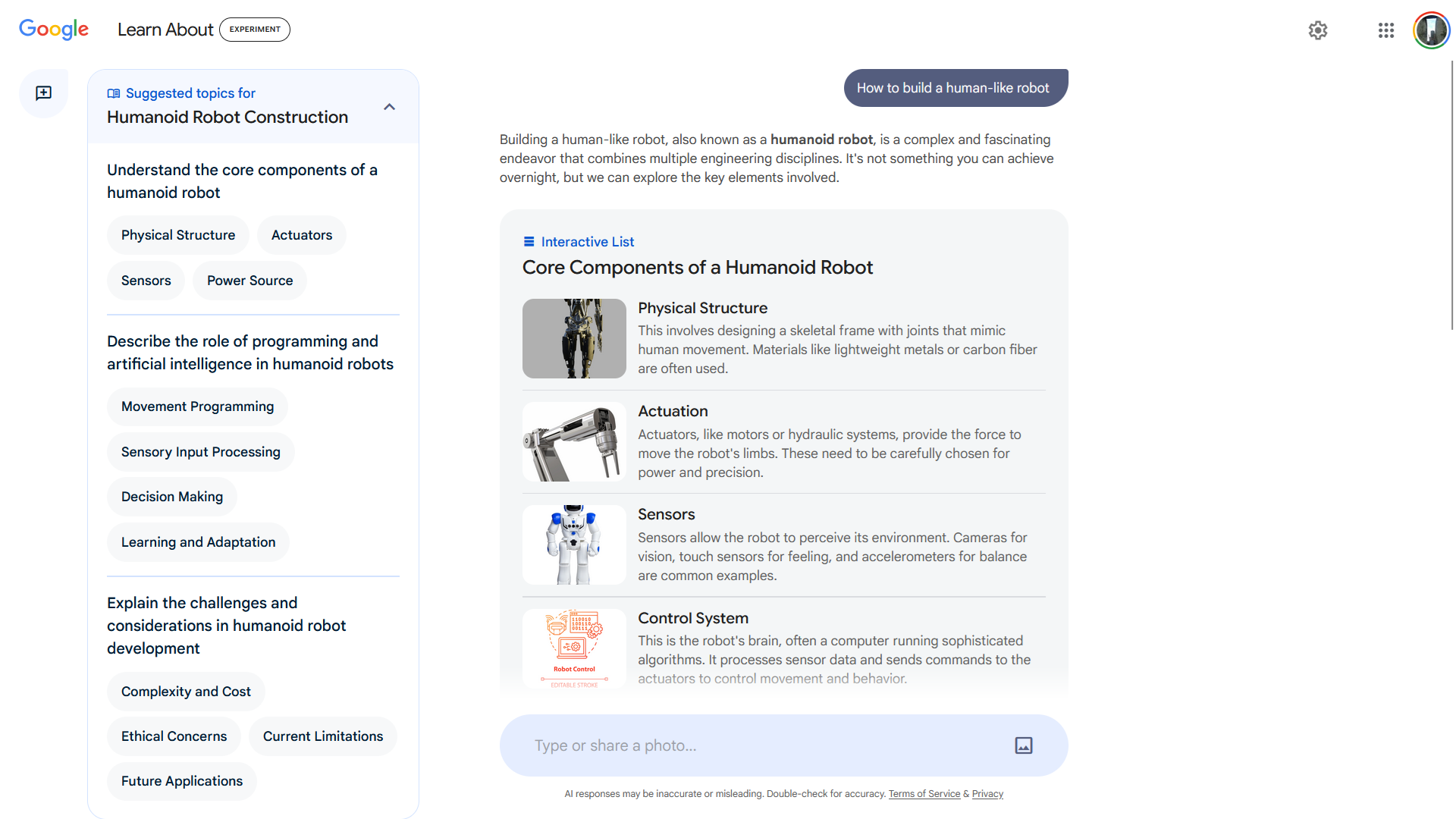Google Learn About is the patient teacher with a bag full of tricks we all wanted as kids
Google's new AI educator goes beyond Gemini to teach you about the universe

AI chatbots can be useful tools for learning about the world, but they aren't usually designed as educators and often are full of caveats regarding where their data comes from. Google has debuted a new AI tutor called Learn About to solve those issues. It's a personal tutor capable of adapting its teaching style in real time. Learn About isn't just a conversational AI chatbot; it combines visual aids and the ability to expand and simplify subjects as needed, like an interactive and intelligent textbook.
Learn About doesn't rely on the Gemini AI models employed by Google in most of its AI services. Instead, it uses the LearnLM model introduced at Google I/O this year. LearnLM has been trained specifically on educational and research-oriented data and is supposed to encourage users to think for themselves. That means the AI doesn't just give a quick answer but tries to impart the facts and the knowledge behind the straightforward answer, including diagrams and annotated text, along with suggested topics related to your initial query.
LearnLM also makes sure the common hallucinations and wrong information regurgitated by AI chatbots are less of an issue. You can ask a question, suggest a topic, or even upload images and let the AI run with whatever it can find about what's in the images. Learn About is currently available to a limited number of U.S. users, but expansion is likely coming soon.
Robotic education

As an experiment, I asked about building a humanoid robot. Learn About didn't just cite an encyclopedia on what that would entail. Instead, I got a whole list of necessary elements broken down with images, context boxes, and further reading. The 'get images' button at the bottom did exactly what it said it would, while the double-check with Google just seemed to confirm the information was accurate. The 'go deeper' button quickly led me down a path of technical details for machining an arm joint. Two paragraphs in, I was lost.
I had much more fun with the 'simplify' button because each time I tapped it, the AI would get more creative in being simple. First, it talked about building a robot like a toy, then it tried to explain how to build a robot like a gingerbread man, then a puppet show, and then a magic Lego man. After that, the AI apparently decided I didn't understand analogies and used very small words to explain robots without any window dressing. Still, the analogies and accompanying images and diagrams were like a window into textbooks for ever-younger children.
People don't always want a personal tutor. Sometimes, the trivia expert version of AI is preferable. But Gemini and LearnLM point out that Google wants people to continue thinking of it as the source of all knowledge, whether that's a simple yes or no answer about where a famous landmark is located or a full lecture on its history and place in local culture. Learn About helps Google set itself up as an information resource and a digital learning companion. And I have to give credit to Learn About for inspiring my upcoming gingerbread puppet show about robots.
You might also like
- Here come the ads in your Google AI Overviews
- Google's AI Overviews goes global, hopefully without the rock-eating suggestions
- Google will turn those long documents into your next favorite podcast
Get daily insight, inspiration and deals in your inbox
Sign up for breaking news, reviews, opinion, top tech deals, and more.

Eric Hal Schwartz is a freelance writer for TechRadar with more than 15 years of experience covering the intersection of the world and technology. For the last five years, he served as head writer for Voicebot.ai and was on the leading edge of reporting on generative AI and large language models. He's since become an expert on the products of generative AI models, such as OpenAI’s ChatGPT, Anthropic’s Claude, Google Gemini, and every other synthetic media tool. His experience runs the gamut of media, including print, digital, broadcast, and live events. Now, he's continuing to tell the stories people want and need to hear about the rapidly evolving AI space and its impact on their lives. Eric is based in New York City.